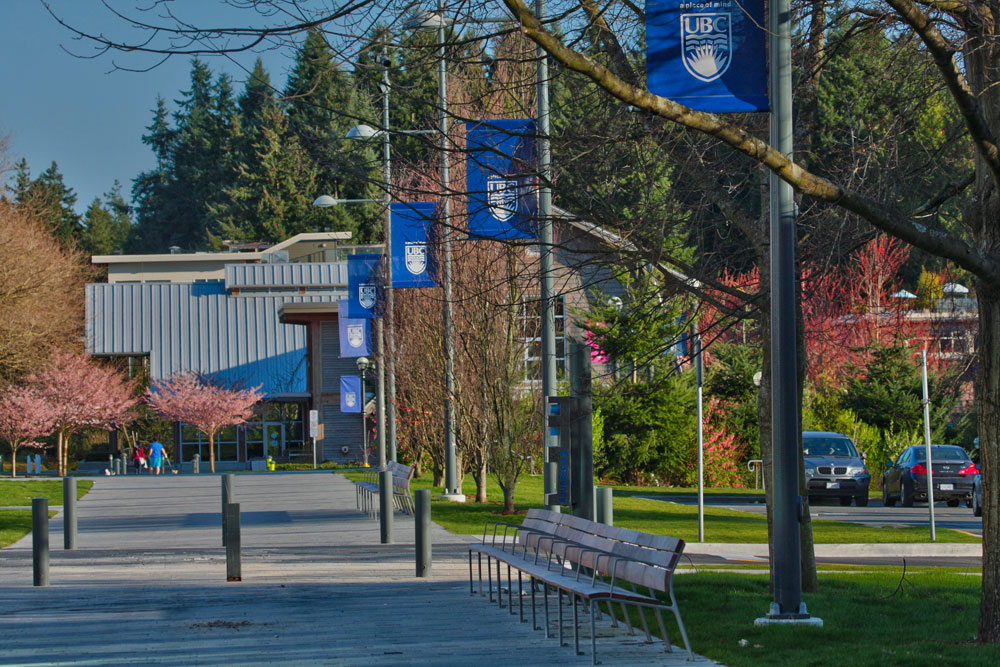rabble is expanding our Parliamentary Bureau and we need your help! Support us on Patreon today!
At every possible level, The University of British Columbia has failed its students who reported sexual assaults — and nothing looks like it will change.
On Sunday, three current and former graduate students in History held a press conference in which they condemn the university for a failure to act on multiple allegations of sexual violence. Multiple women allege that Dmitry Mordvinov, a 28-year old PhD student, is a serial abuser who committed a large range of sexual assaults including harassment, groping and rape.
The first approach to UBC over Mordvinov’s assaults was made in January 2014 with the first formal complaint following later that spring. While Mordvinov is no longer a student at UBC, he was registered as a UBC student at three conferences in the United States this month. His student status was not removed from UBC websites until November 19.
The women Mordvinov assaulted — and those who witnessed his assaults — made multiple complaints at the departmental level, at UBC’s Equity Inclusion Office, to Associate Vice-President of Equity and Inclusion Sara-Jane Finlay, the UBC ombudsperson and Student Conduct and Safety Services. There were likely more. Every office failed these women.
As if testimony from multiple women was not enough — and we know, in fact, that it rarely is — Mordvinov has admitted an assault took place and shows no remorse for his action. The fifth estate documentary that broke the story reported that Mordvinov told them in an email: “I do realize that in Canada drunk sex is non-consensual, although this thought unfortunately did not cross my mind back then.”
MA graduate Glynnis Kirchmeier witnessed one of Mordvinov’s assaults and was one of the first to make a complaint to the department. She aptly summed up the whole calamity in Sunday’s press conference: “UBC’s chance to do the right thing is over,” she said. She intends to file a complaint with the BC Human Rights Tribunal by the end of the year. She’s asking anyone who reported sexual misconduct to the school during the past 20 years to contact her at [email protected].
UBC remains defiant
UBC is doing its best to spin this disgraceful episode positively. University President Martha Piper issued a textbook response to Sunday’s press conference: “I want to apologize to the women in these cases who feel they have been let down by our university.” None of the women involved in the complaint were approached personally by Piper with an apology. They weren’t even forwarded a link to the official UBC press release.
As rabble.ca blogger Lucia Lorenzi put it on Twitter, “If your apology is “I’m sorry you FEEL we let we down” when there’s concrete evidence you let survivors down…that’s not an apology.” Incidentally, Lorenzi was also assaulted on UBC campus in a separate incident. She complained. Virtually nothing has happened.
While Piper acknowledged that “the process took too long,” in what reads almost as a rebuke to the complainants, she added that “Due process can be frustrating and time-consuming.” No one, neither Mordvinov nor the complainants received anything close to “due process.”
In fact, the entire episode is characterized by an allergy to process of any kind. In an email, Kirchmeier characterized the university’s response to her repeated requests for clarity as “appease, appease, appease and fade.” She also revealed that Mordvinov wasn’t informed of the complaints against him until May 2015 and the details were not disclosed to him until August. It’s also unclear what internal appeal process is available to Mordvinov now that he has been expelled over a non-academic matter.
For her part, Finlay told The National that UBC hoped to “learn” from the experiences of the complainants. Aside from the fact that the experiences of sexual assault survivors should not be treated as archives or seminars for institutions unable to adequately support its students, UBC doesn’t need to “learn” anything. In fact, it already has all the answers it needs.
Some of this may sound familiar: in 2013, UBC made national headlines because of a chant celebrating rape used during frosh week at Sauder School of Business. The university commissioned a task force to address the culture of sexual violence at the school. Almost none of the recommendations have been implemented.
Kaitlin Russel, one of the complainants, has demanded UBC implement a Sexual Assault Response Team (SART) designed to deal with similar complaints quickly and efficiently. For years, UBC refused to create a sexual assault resource or survivors centre so UBC’s student union, the AMS, opened their own in 2002. Like most student-run campus centres nationwide, it remains chronically underfunded and understaffed.
When a report came out earlier this year showing that UBC’s internal statistics for reported sexual assaults were roughly one-fifth of the number recorded by the on-campus RCMP detachment, Vice President of Students Louise Cowin, incredulously, again attempted to spin the report positively: “UBC as a campus culture, as a campus environment, really, holds a space where the intention of care and inclusion are very much present so that those who are survivors of sexual assault know that they can come forward in a safe space where their voices will be heard.”
If those words sounded suspect then, they are downright farcical now.
Disclosure: I worked with Glynnis Kirchmeier for one year on the executive of CUPE local 2278, UBC’s teaching assistant union.
rabble is expanding our Parliamentary Bureau and we need your help! Support us on Patreon today!
Image: ubc.ca
An earlier version of this article misreported Dr. Finlay’s executive position. This error has been corrected.



